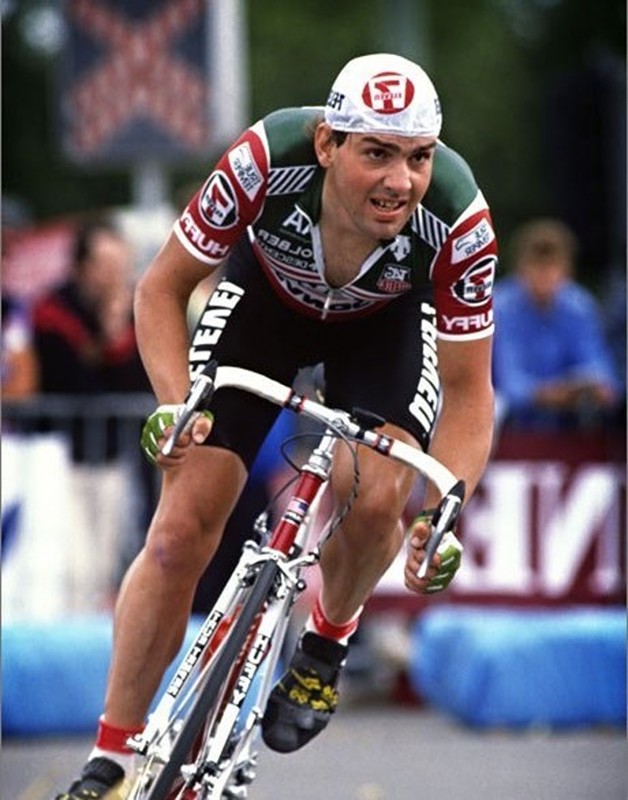
There is no more daunting test for a professional cyclist than a mid-race Tour de France grind over 221kms from Morzine in the French Alps to the seemingly endless switch-backs to the summit of Alpe d’Huez.
Such was the cycling times of kiwi Nathan Dahlberg, who traded those hard-nosed days as a professional rider in Europe ultimately for the snowy silence and grandeur of the highest mountains of the Himalayas and Western China.
With an understanding that everything is impermanent, he challenged those notions of limitations until his time ran out recently in the high mountains of China.
Nathan, born in the cycling nursery of Whanganui in 1964, became one of New Zealand’s early world-class professional riders, just the sixth kiwi to complete cycling’s signature Tour de France when he was a late call-up in 1988 for the famed American 7 Eleven team.
His professional palmares included the Grand Tours of Tour de France in 1988 and 1989 and the Giro d’Italia in 1990. He enjoyed stage wins in the Tour de Suisse, Vuelta Mexico, Tour de Service and overall GC title in the Tour du Maroc.
His final European pro team was Marco Polo, where he returned as a sports director with team line-up in its final year of existence including young kiwis Marc Ryan, Shane Archbold, Chris Macic and Cam Karwowski.
Nathan traded the dour cycling climes of Belgium for the silent splendour and magnitude of the high mountains – initially the Southern Alps of the South Island before finding solace and solitude in the highest of mountains in the Himalayas and China.
His former cycling teammate, American Olympian Scott McKinley said:
“Nathan was a philosopher not by choice but by necessity. He crafted a worldview that allowed him to tolerate what he saw as the insanity of human behaviour. He was somehow both a cynic and an optimist.
“I think he found peace among those snowy peaks. The mountains didn’t move. The mountains were silent and wise. For Nathan, unlike in life, the goal in the mountains was finally clear – ascend as high as you can, then see as far as you can see.”
Well-known Nelson adventurer and cyclist, Nathan Fa’avae, who qualified for the 1996 Olympics under the coaching guidance of Dahlberg, was a friend and hiking companion.
“I vividly recall him saying that he believed death was the best part of life – because without it, there would be no urgency, and life would lose its meaning.”
Nathan, who leaves behind his wife Linna and five children, will always hold a valued place in the annals of New Zealand Cycling.
